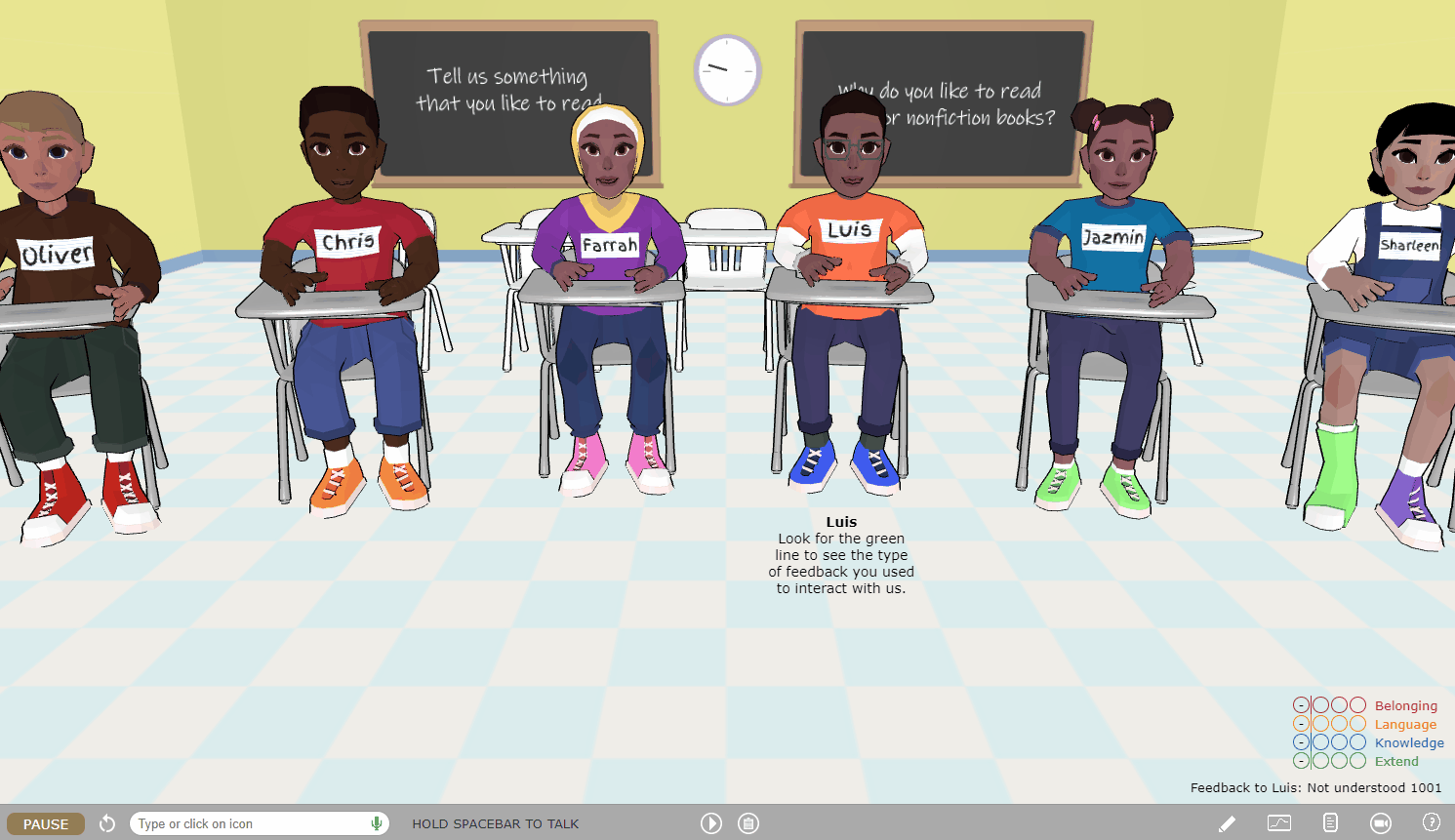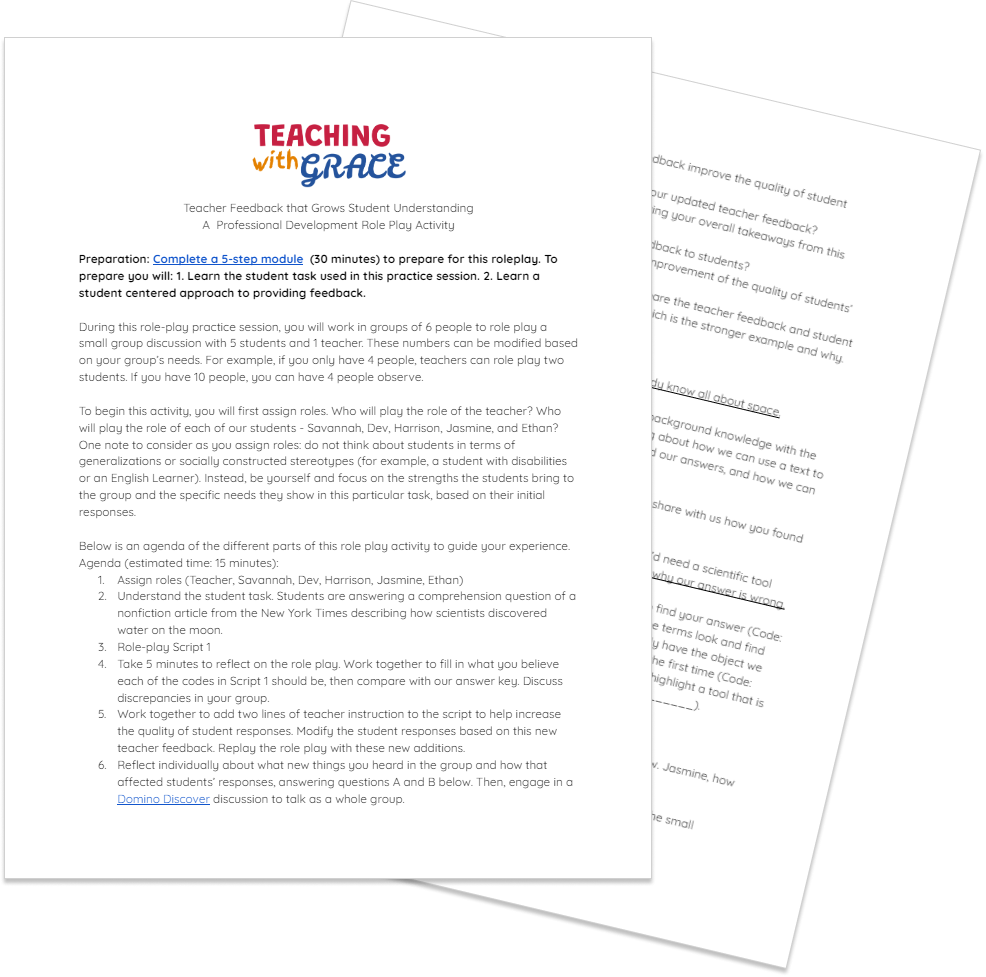
Practice is vital to improving your teaching skills. Teaching with Grace invites teacher to role-play in simulations of situations they might encounter in the classroom. The scenarios are designed to help teachers develop research-based teaching practices for inclusive classrooms.

Teaching with Grace enables teachers to recognize the instructional base (i.e. content knowledge, pedagogical knowledge, self-awareness, and cultural awareness) that supports teaching decisions on their feet as learning unfolds.
Through Teaching with Grace, teachers build their self-awareness through slowing down time to not only to try out teaching practices, but, to consider how student answers prompt or trigger teacher responses.
Teaching with Grace simulations all begin with listening to students and provide teachers with visual displays of student variances. Taking time to learn about student strengths that new learning will build upon and perceiving student differences are key components to culturally responsive and sustaining pedagogies. Each simulation involves a student task that furthers teacher content knowledge of topics taught across grades and subjects. For example, our feedback task focuses on student reading comprehension of non-fiction texts. All P-12 students must learn to comprehend non-fiction texts. The Reading Interest task explores the broad range of reading materials that students engage with outside of school. Following the simulation, teachers are challenged to leverage their learning about student background knowledge to increase the relevance for students of a required reading.
Teaching with Grace develops teacher pedagogical knowledge in offering high information feedback. TwG focuses on increasing teacher fluency with the types of feedback that are challenging to offer within the time constraints of lessons. Research shows that teacher feedback has high impact on student learning – reflecting back to students the thinking work shown in student responses and prompting thinking that leads to learning.
Self reflection prompts, visualizations of the types of feedback offered to students. Teaching with Grace offers the opportunity to develop teacher self-awareness by slowing down teacher-student interactions allowing teachers to practice being fully present, responsive, imaginative, and precise or deliberate.
License
Digital Teaching with Grace is released under the MIT license https://github.com/bferster/liza




